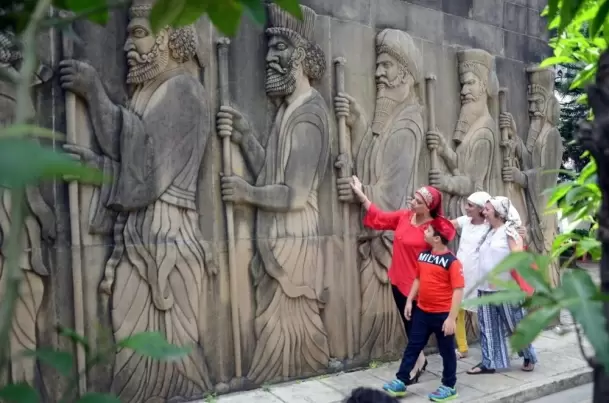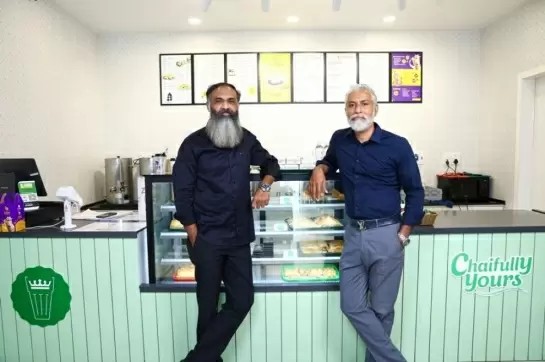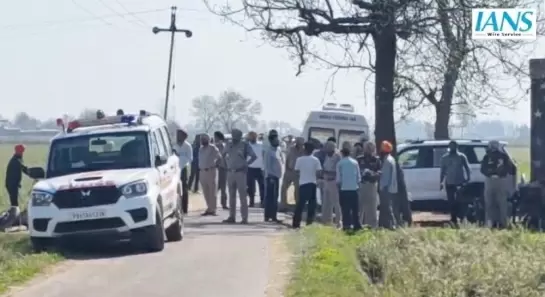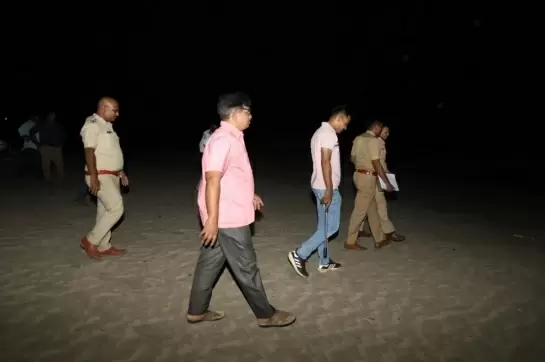Parsis -- an insider's gaze
New Delhi
01-August-2021

Photo: IANS
Several years back, when she decided to go on a pilgrimage to Parsi sites including Sanjan, Navsari and Udavada, someone asked her where her family was from. Considering Coomi Kapoor had grown up in Mumbai, she had no answer.
However, it was the Tatas-Mistry feud in the year 2016 that gave her the start. "Now I am not a scholar, and I wanted an interesting story. The Tata-Mistry fallout ascertained excellent colour and background. Here were all the ingredients of a good story. A large business house, respected and known to be ethical. It's not just about the company, everybody's backgrounds are so interesting. But as I said, it's just the 'start' for the book," Kapoor tells IANS.
The author adds that there was much more to the feud than what appeared in the newspapers. "There were complex dynamics of personalities and families involved. Let's also not forget that Nusli Wadia, chairman of the Wadia Group, was a director on three major Tara company boards."
Watch This TWL Video
In the book, Coomi explores how Parsis were involved and doing well in different professions, and the fact that they came to Mumbai even before the British, she asserts that the city always served as a natural port, thus giving them an opportunity to become traders, translators and shipbuilders. In fact, Wadia's ancestors, who came from Surat, were involved in shipbuilding for seven generations.
"Also, they were always keen to learn new languages, consequently they had a great comfort level with the Dutch, Portugese, French and British. Now, history proves that they came before the Marathas. And to have Shiv Sena talking about this 'sons of the soil' theory and that outsiders should not get in..."
While for a long time, the Parsis were the dominant population of Mumbai, getting on well with the British, it was only after the dog riots in the early 1830's that the latter decided to bring in more communities to the city.
Talk to her about the chapter in the book 'Trailblazing Women', and the early empowerment of Parsi women, and the author says that the community quite very early on realised the need for women emancipation. "Parsis were clear that if they wanted to progress, it was important that women be at par with men. No wonder they set up so many girls' schools. They were much earlier in education than those from other communities and managed to break the glass ceiling. And this tradition has not died out. Even today -- they are bankers, industrialists, sportswomen and doctors. This is quite remarkable considering their numbers."
Despite being achievers, the number of Parsis continue to dwindle. Kapoor says that is because they have fewer children and considering their level of education, they do not have large families. "They generally do not get married until they have a certain standard of living. Another major reason is that children of Parsi women who marry outside their religion are not accepted."
Writing this book required Kapoor to meet subjects, and those close to them, and take extensive interviews. "I had a job, so I wrote whenever I could snatch time. Most of the people I needed to interact with for the book were in Mumbai. The best part was that there was no deadline so it was a really fun and interesting project," she concludes.-IANS
More Headlines
NPG Evaluates 8 Key Infrastructure Projects Under PM GatiShakti Plan
Rupee Symbol Debate Heats Up as Tamil Nadu Opts for ‘ரூ’
AIADMK Walks Out, BJP Boycotts Tamil Nadu Budget Session
AI Cybersecurity Startup Neural Defend Raises $600K in Pre-Seed Round
Chennai Doctor and Family Found Dead Amid ₹5 Crore Business Loss
NPG Evaluates 8 Key Infrastructure Projects Under PM GatiShakti Plan
Rupee Symbol Debate Heats Up as Tamil Nadu Opts for ‘ரூ’
AIADMK Walks Out, BJP Boycotts Tamil Nadu Budget Session
AI Cybersecurity Startup Neural Defend Raises $600K in Pre-Seed Round
Chennai Doctor and Family Found Dead Amid ₹5 Crore Business Loss










